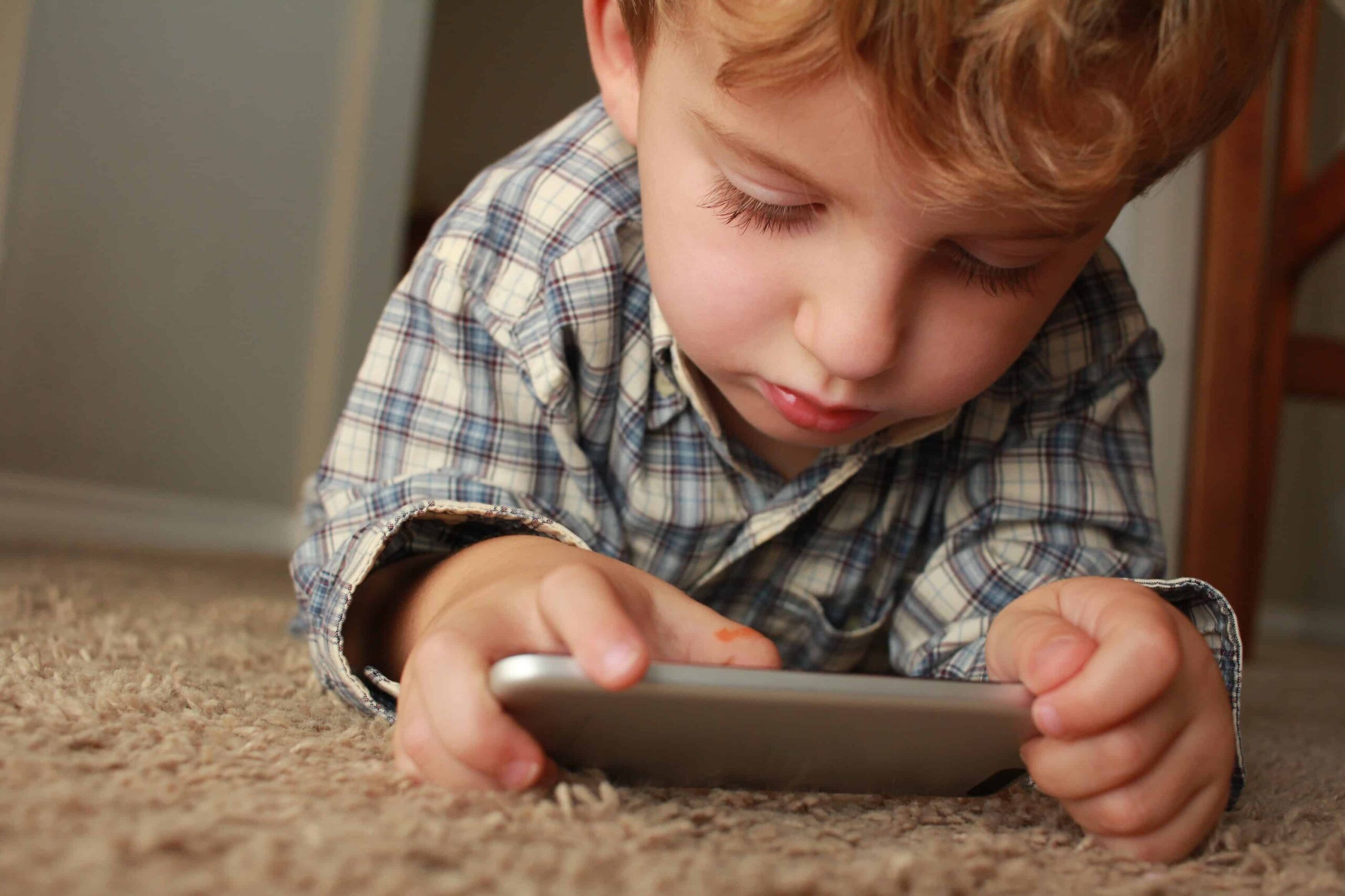According to the American Academy of Pediatrics, children are getting an average of 7 hours per day of screen time, from television and computers to phones and game consoles. Did you know that the American Academy of Pediatrics’ recommends avoiding digital media use in children younger than 18 to 24 months?
Nowadays, it’s rare Not to see a person staring at his or her phone while waiting or hanging around for something else to start.
Today, waiting, relaxing, and unwinding equates to watching a phone, a tablet or television. The art of waiting without some form of technology is a thing of the past since we are constantly plugged in and stimulated.
Children waiting to eat dinner at a restaurant are now playing with phones and iPads instead of coloring or drawing on paper placemats, or better yet having a conversation! At home, they play on apps or watch YouTube videos of other children playing instead of playing with toys or running around outside.
Is This Our Children’s Fault?
Of course not! Usually, children get screen time because it keeps them occupied while parents work to finish day-to-day tasks like work, home chores or other things. This is completely understandable. Giving your child a tablet or television show is an easy solution, and it can occupy children for at least a short amount of time while you strive to complete a task.
But this doesn’t help the long-term skills they need to develop motor skills, problem solving and for engaging in age-appropriate peer relationships.
Design and Implement a System to Change a Behavior
When it comes to changing a behavior or pattern, it is up to you to truly want change. The most important, and challenging, part of change is the dedication and effort it takes to change behaviors and patterns. If you are serious about getting your child unplugged, you need to unplug. Children model what they see, so if they see a parent on technology all the time, they will want to be on technology
Since change requires effort, develop a system that makes it easier to change the habit!
Any change in behavior requires we have a replacement behavior – make sure there are plenty of opportunities to engage that don’t involve screen time. It is summer and it can be hot outside – look for things to do outside but do it early in the day. Physical exercise beats screen time any day, so go play catch with your child, hopscotch, go for a bike ride or a trip to the park.
Give your child responsibility to help plan/make lunch. Pre-plan lunches so they have healthy choices to choose from and let them do or help with the prep. Cooking and baking are also great alternatives to screen time. Find things that are fun for kids to make and eat like Rice Krispy bars, finger jello or oatmeal cookies.
You can support literacy skills by encouraging book time during rest time. Rather than looking at your phone during down times or wait times, pick up a book or magazine. What a great way to model a behavior but also start a conversation.
Late afternoons can be spent with legos, coloring/drawing, building, and early literacy skills (dot to dot, crossword puzzles, hidden pictures) as a way to develop good problem-solving skills. Board games on hot afternoons are another great way to build social interaction with peers and friends that are not developed through technology. Board games are great for family time as well to bring everyone together, healthy competition while building community all at the same time.
The skills we learned before technology was ever so present are still great for developing our children’s minds, problem solving, motor skills and communication. What we learn through play leads to improved problem solving skills/creativity, language development and age-appropriate peer interactions.
Contact Greater Learning LP to start working with a passionate speech-language pathologist and discover ways to involve the whole family in fun, educational activities!


0 Comments